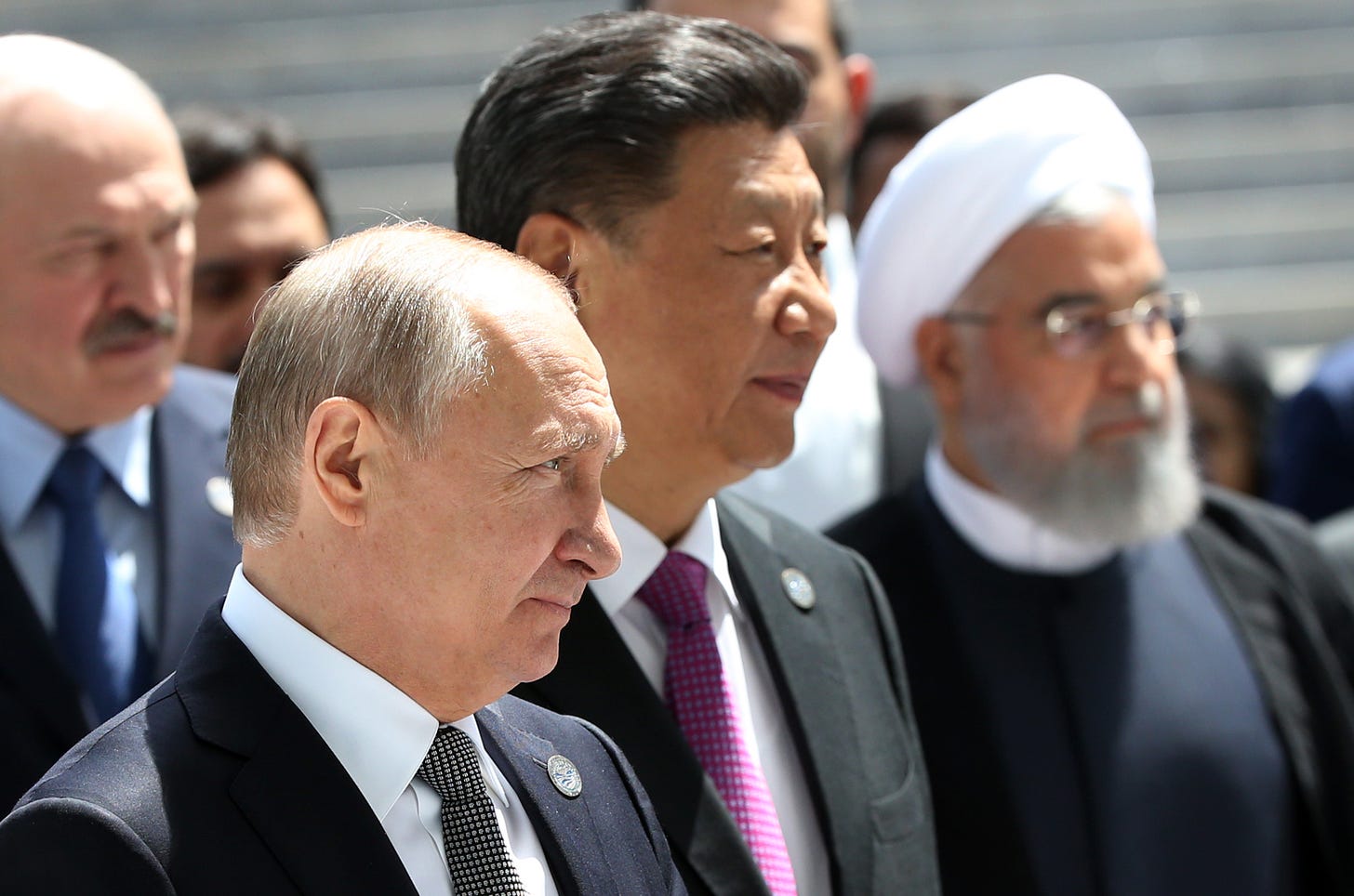Everyone can see that Vladimir Putin's invasion of Ukraine has radically altered the foreign policy map, making scores of needless tragedies unavoidable and risking an outbreak of genuinely unprecedented global violence. None of the foreign policy options at this particular juncture look particularly good, and it is much too early to predict exactly how this conflict will change global politics. But I think we can say with certainty that Putin’s war has transformed the international economy, and I expect the ramifications to last longer than most people currently want to imagine.
We typically talk about sanctions in foreign policy as a moderate step between asking nicely for things and dropping bombs on people. The sanctions the U.S. and the European Union have deployed against Russia, however, are essentially economic warfare. Western powers are doing what they can to cut off Russia from global markets. President Joe Biden and European leaders are being very careful to avoid direct violent exchanges with the Russian military — with good reason — but the sanctions regime is the sort of thing that nations do when they are at war.
A lot of early media attention surrounding the sanctions has focused on Russian consumers lined up at ATMs and plunging stock prices and charts showing the ruble losing its value against the dollar. All of that matters symbolically and psychologically, but the overarching goal for a program like this is to cut off Russia from imports and the means of purchasing imports. This makes it more expensive for Russia to prosecute its war and imposes costs on the Russian economy, which eventually translates into a lower standard of living for ordinary Russians.
In the Washington Post, Tufts foreign policy professor Dan Drezner worries that there is not an obvious off-ramp for ending the misery that this will impose on civilians, however necessary the sanctions may be at the moment. What deal are Western leaders willing to take in exchange for lifting the sanctions? What achievable goal is being sought?
These are reasonable questions and I can imagine a lot of reasonable answers -- some kind of diplomatic solution where a bit of territory is exchanged for a withdrawal of Russian troops and a lifting of Western sanctions. But my purpose here is not to detail a quick and peaceful diplomatic solution, because unfortunately I think anything like that is pretty unlikely. If Russia follows through with the total war program against the Ukrainian people that we’ve seen in Kharkiv, the sanctions will be politically impossible to abandon. No world leader will want to be seen rewarding Russia for laying siege to Ukrainian cities.

Even if the sanctions are soon lifted through an unexpected diplomatic breakthrough, Western investors are going to be much more cautious about the political risks in Russia for some time. The corporate flight from Russia has been breathtaking, and BP isn't just going to buy back its Rosneft stake whenever this is over.
All of that being said, I think Drezner is overstating his case when he says these sanctions could "capsize a tottering global economy." So long as China stays in Putin's corner, many of the long-term problems that the sanctions regime will create for Russia can be mitigated. Even if Europe finds a way to wean itself off of Russian energy, Russia can still sell energy and base metals to China, while shifting a lot of its imports from Western sources to China. What the rest of the world used to buy from Russia, it will now get from China without triggering a sanctions violation.
Russia will become much more dependent on China in this process, and there will be a bunch of disruptions and turmoil along the way (I doubt many participants in the past year’s Twitter econ wars expected wheat prices to spike on Monday, for instance). But the West cannot "sanction Russia into the Stone Age," as Drezner quotes some reckless foreign policy hands -- without the consent of Beijing. And while Xi Jinping does seem irritated with Putin over the optics of the invasion -- how awkward -- so far there are no signs that the CCP wants to abandon its ally in Moscow.
All of this suggests that it is way past time to get serious about U.S. industrial policy. Disentangle what we can not only from Russia, but from China, and have a plan for the domestic provision of essential commodities, or at least supply chains that run through reliable allies. That is a lot of work, it will take time, and it will involve some costs, including a pretty frank assessment of trade-offs with other progressive priorities, particularly on energy.
We've been talking a lot about inflation over the past year. I think we have to absorb that discussion into a broader economic management discussion that takes into account the uncertainties and instability of the current geopolitical order. Whenever and however Putin's war ends, the United States needs a coherent domestic economic plan that isn't dependent on authoritarian power.
In short, read my latest for The New Republic.





Very nice write-up + TNR article.
If it ever makes sense on your end, I would certainly be interested in a deeper dive on the energy/climate angle.